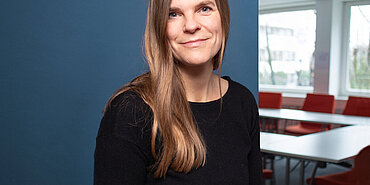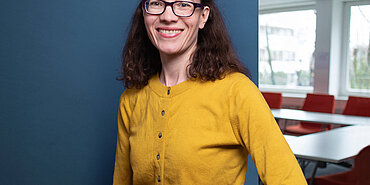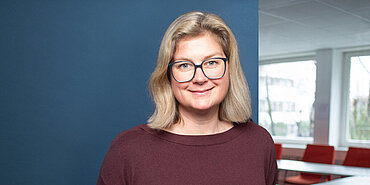Stays abroad, learning mobilities, international experiences. All of this is becoming increasingly important for young people's lives. But when it comes to mobility, a quiet alarm bell rings in the back of their minds - because mobility is not possible without travel, and travel is repeatedly criticized as one of the main causes of climate change. A topic that is particularly important to the Fridays-For-Future generation. So how can young people escape the dilemma between mobility and the climate crisis?
Listening to young people
What could a more climate-neutral future look like if we were allowed to let our imagination run wild? With this question, the workshop starts into an instructive and exchange-rich day. It quickly becomes clear that most of the participants are concerned about the future of our world. Ideas emerge ranging from a CO2 account for every person, to floating farms and laws to protect the world's oceans, to resource cards for a fairer distribution of food. Even if these ideas are only imaginative, they still show us where problems exist and what responsibility we bear today.
The LEMOCC project has also recognized and evaluated these concerns of young people. The study Listening to young people: Mobility for future reflects the opinions, ideas, and problems of young people in Europe about the climate crisis and mobility. In the workshop, key statements on the main topics of politics, pedagogy and organization will be processed and evaluated based on the study. And the experiences from the different countries paint a similar picture: There is still too little attention for these topics and too few people who become active themselves. This is one reason why events of this kind are needed, where young people can have their say and discuss the issues.
"We are the generation that needs this planet in the future!"
On this day, everyone agrees on one thing: young people must and should travel. They should see the world, experience cultures, and gather experiences. Because that is an important part of growing up, of outgrowing themselves. Even though many projects and events take place online these days, we also agree on this point: Virtual meetings are no substitute for real-life experiences, or at least not completely. So where should we start instead? In an action plan, the ideas of the young people are compiled and concretized. The opinion emerges that politics in particular is under pressure. Because it is easy to blame youth mobility alone. Instead, general political changes are needed to reduce CO2 emissions, such as the energy transition, a reduction in factory farming or the expansion of local public transport. Specifically, the young people would like to see cheaper train travel, an expansion of digitalization or sustainable materials during their stay. Because as one of the participants summarizes: "We are the generation that needs this planet in the future!" And for that, a shift in thinking in many areas of life is essential.
What conclusion can be drawn from workshops like this?
Young people are very committed - especially in climate policy - and have developed a great awareness of their own actions. It is important to reflect on one's own behavior and to question issues such as travel and mobility. Nevertheless, responsibility must not be shifted to the younger generation alone. Instead, the issue should be examined from several angles. Educational institutions, which must provide information and raise awareness, play a particularly important role here. But also, politics, which can make a real difference. And that is exactly what the "Future me" workshop aims to achieve when the recommendations of the young participants are published as part of the final project publication aimed at practitioners, politicians, and decision-makers. Only in this way can sustainable strategies be disseminated, implemented, and adapted to the needs of (young) people.


![[Translate to Englisch:] [Translate to Englisch:]](/fileadmin/_processed_/6/7/csm_alessandra-caretto-cAY9X4rPG3g-unsplash_6c2cff08d7.jpg)





